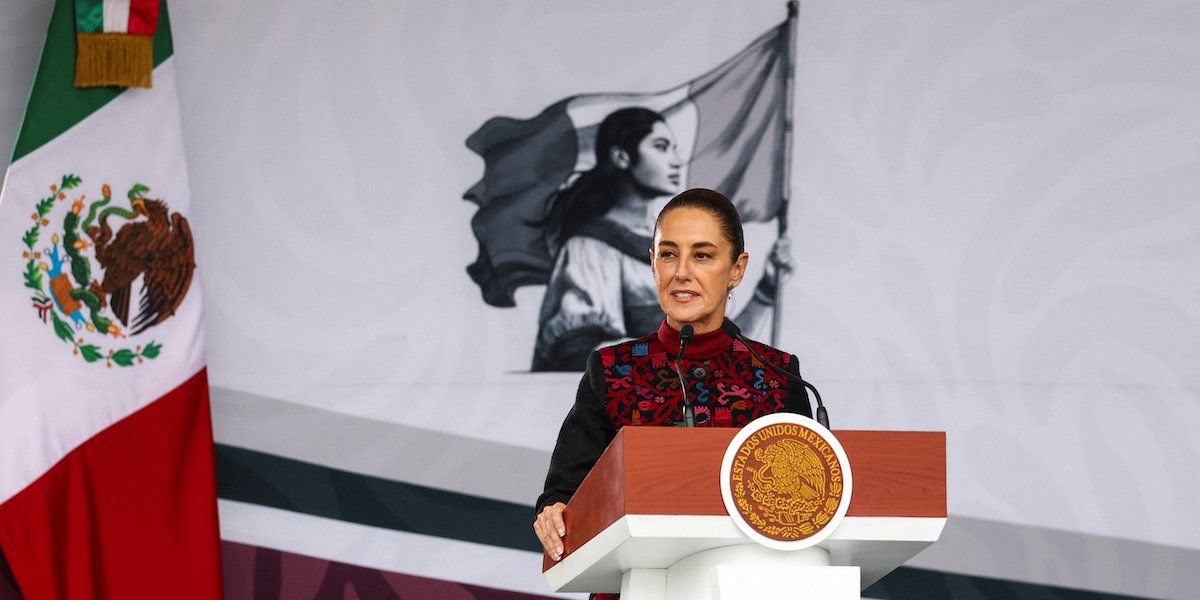Mexico's President Claudia Sheinbaum speaks, on the day of the 114th anniversary of the Mexican Revolution, in Mexico City, Mexico November 20, 2024.
The lower house of Mexico’s Congress approved the text of a constitutional proposal to scrap oversight bodies on Wednesday, a first step in the ruling Morena party’s goal of eliminating autonomous institutions and consolidating power.
The change is just the latest in a series of reforms begun under former President Andrés Manuel López Obrador and carried out by his successor, Claudia Sheinbaum. Plans include overhauling the energy sector and judicial system, and guaranteeing a minimum wage that stays above inflation.
The bill passed by the lower house moves agencies overseeing government transparency, telecommunications, antitrust, energy, education, social policy, and other regulators under the jurisdiction of the executive branch, removing their institutional autonomy. It passed 347–148 and only needs one vote to pass the Senate before the legislative period ends on Dec. 15.
Sheinbaum backs the proposal, arguing that regulators are inefficient and that eliminating them will save taxpayer dollars. But her party has put forward a compromise to appease critics: decentralized agencies to ensure that antitrust and communications regulators remain independent, even as they are absorbed under the executive’s umbrella. The compromise is also meant to ensure the constitutional changes don’t contradict the terms of the trade deal with the US and Canada — which requires Mexico to have independent oversight bodies — ahead of renegotiations in 2026.
